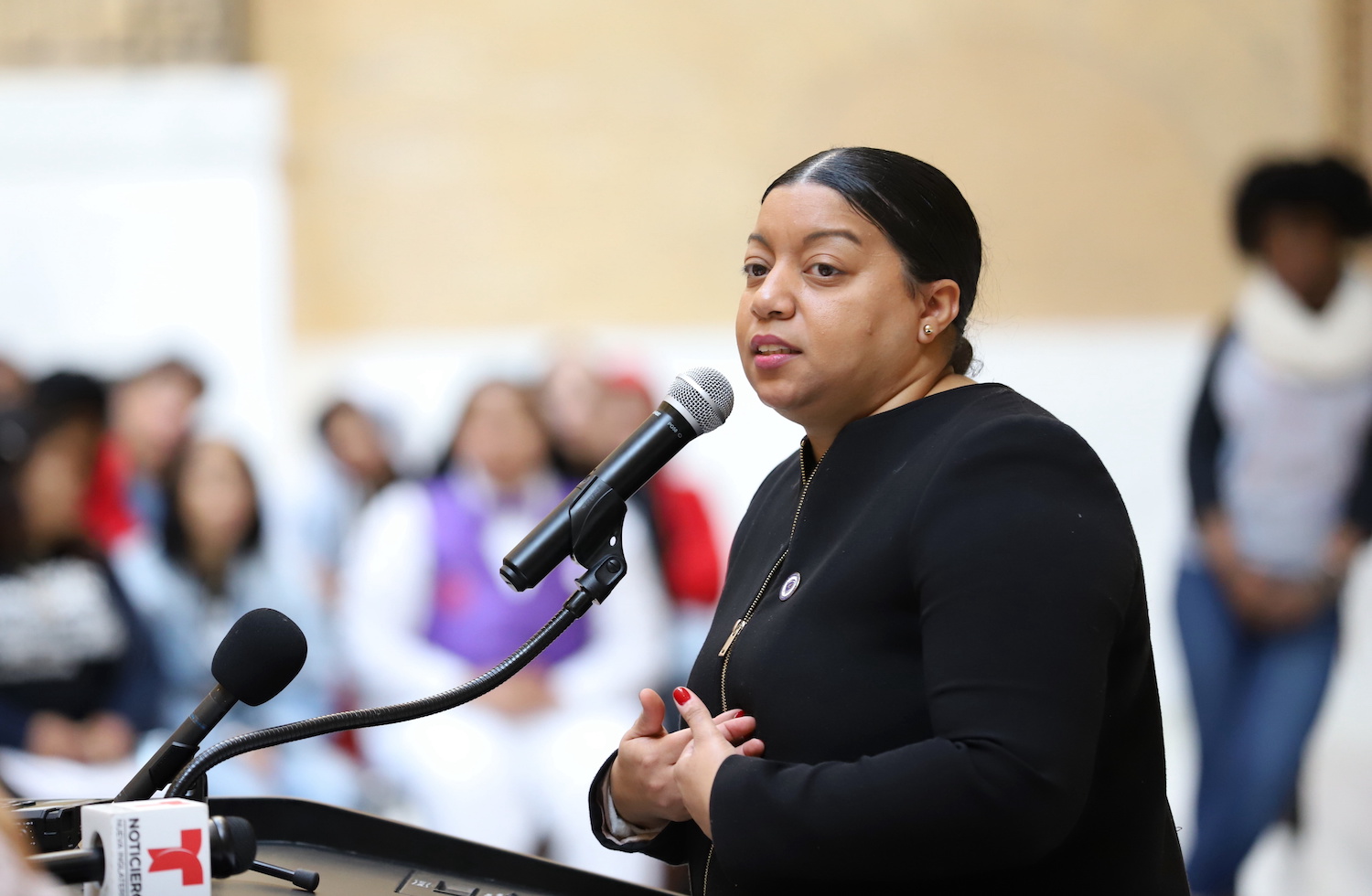latest
Massachusetts bills will eliminate life sentences without the possibility of parole; here are the details

Sam Drysdale
BOSTON – Hoping to finally make headway after years of efforts, criminal justice reform advocates knocked doors Wednesday at the State House asking lawmakers to back a bill to give people serving life sentences the chance at a parole hearing.
The companion House and Senate bills would eliminate life sentences without the possibility of parole by allowing incarcerated people the opportunity to have a parole hearing after 25 years of their sentence. It would not guarantee parole, only a hearing.
“We have Mr. Dickerson, 50 years at MCI Norfolk, he’s been there. I think he needs a second chance. Mr. Parker, 25 years yesterday. They need a second chance,” said Cynthia Goldberg of the Campaign to End Life Without Parole, gesturing at photos of incarcerated men.
It would also require the Department of Correction to provide anyone sentenced to more than 25 years with the chance to participate in a restorative justice program connecting “the prisoner and victims, family of the victims, the parties to a crime, and community members within the prison.
The goal there is to identify and address harms and needs and obligations resulting from an offense to understand and reconcile the impact of that offense,” according to the bill text.
“There would be an opportunity to take accountability, and they could come to the parole hearing with an open heart and understanding and ready to rejoin the community,” said Daniel Delaney of Delaney Policy Group, who is lobbying for the bill.
The legislation was first introduced in 2019 by state Rep. Jay Livingstone, D-8th Suffolk, and former state Sen. Joseph Boncore.
At the time, Sen. Jamie Eldridge, D-Middlesex/Worcester, who served as the chairman of the Judiciary Committee, said the number of people serving life sentences in Massachusetts had “skyrocketed.”
Just over 1,000 people in 2016 were serving a life sentence without the possibility of parole.
As of July 1, 2024, there were 1,774 incarcerated people serving life sentences in Massachusetts Department of Corrections facilities, according to an FAQ published by the department.
This year, the bill is sponsored by state Rep. Chris Worrell and state Sen. Liz Miranda, both Boston Democrats. Miranda, who was not at Wednesday’s event, has previously shared her personal story in support for the bill.
Miranda’s younger brother, Michael, was shot and killed in Boston in 2017. Miranda first backed the parole hearing bill in 2021, the year before the trial for the men involved in her brother’s death. She said at the time that she planned to make it clear she opposed a life sentence without parole for those men.
“I believe life without parole is death by another name, and I do not believe in death sentences,” Miranda said during a legislative hearing in 2021. “I do not believe that justice is upholding mass incarceration in our communities that perpetuates generational poverty, violence and trauma.”
Every session it’s been filed, the bill has been shuttled to a dead-end study order after getting a hearing.
Delaney said supporters have refined the bill, and are trying to hone in on messaging about overturning wrongful convictions, decreasing pressure on strained prisons, and releasing people back into communities that have taken accountability and aren’t likely to reoffend.
“Data shows us that people age out of recidivism. In your 50s, 60s, and 70s that likelihood of reoffending is much less likely than in your 20s or 30s,” he said.
“In addition to the justice reform aspects, we’re also stressing that it’s enormously expensive as they have medical costs … It can be up to a million dollars a year,” he continued. “It’s so much more expensive to treat someone in a prison context, than even if they’re on MassHealth. We want to have that full conversation.”






